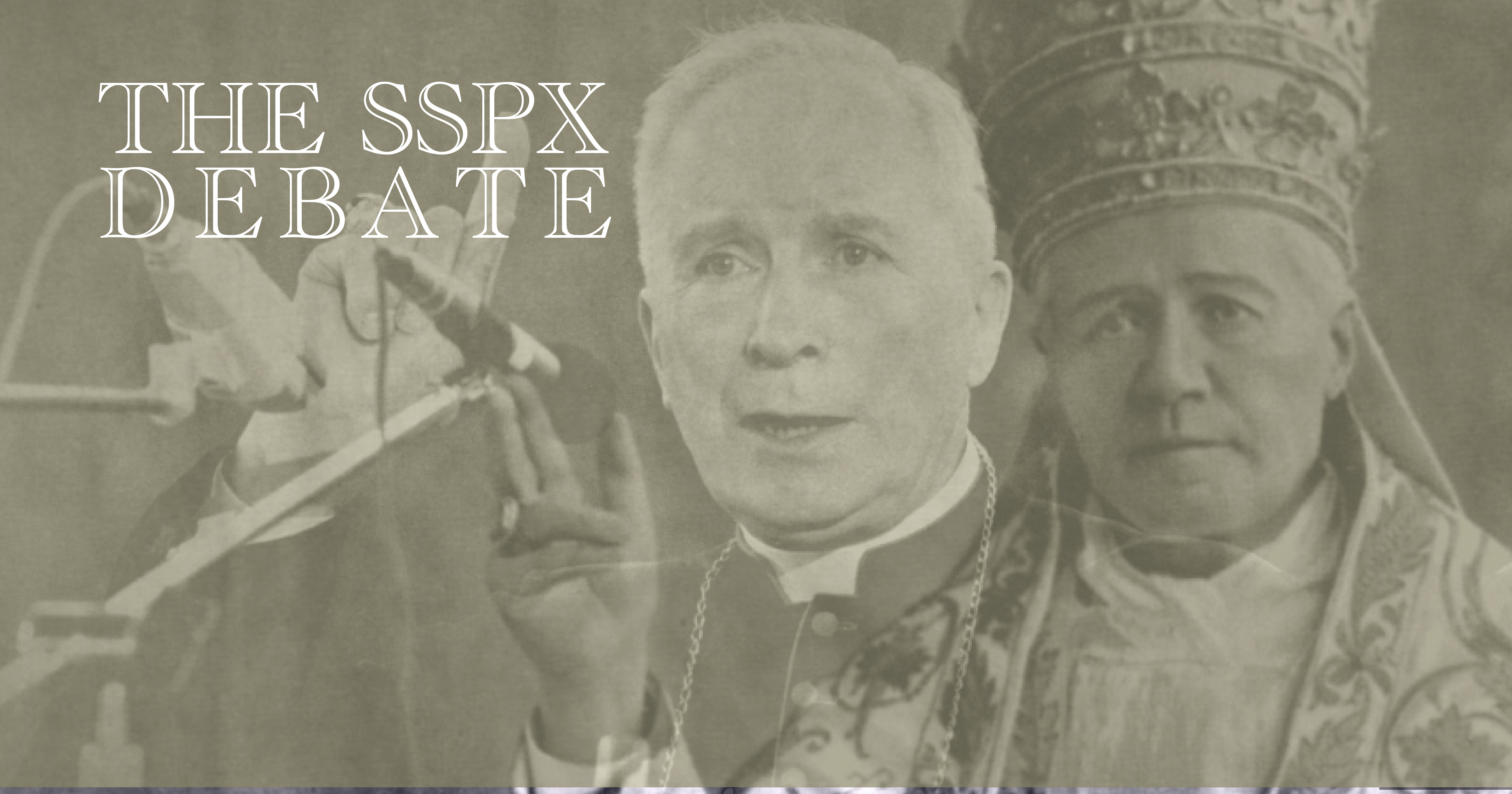OnePeterFive has requested articles on both sides of the SSPX debate. I hate to break the rules, but I want to suggest a third side.
I am not God. But if I were, I probably would not allow hundreds of millions of children to be tortured to death in their mother’s wombs. I probably would not allow kids to be kidnapped and then used to produce horrific videos. I probably would not allow a pope to pretend to change unchangeable truths regarding marriage, the death penalty, the power of God’s grace to keep us from sin, and a slew of other things.
But God allows these things.
If we ask why He does so, I think very few would have the boldness to offer reasons more specific than the very general reason, “to bring about a greater good.” What is this greater good that permits child pornography or mass destruction of the faith by a man who is supposed to defend it? Hard to tell.
His ways are unsearchable and His wisdom is beyond us. We are men. For the most part, we know very little. Very little indeed.
The third side I want to suggest, regarding the SSPX, is this: we can’t really know what to think.
There are things we can know (I use the word “know” here, to mean, “be certain about”). Three persons are one God. Jesus Christ is one person with two natures. He established a Church with an office of Pope. To obey the pope is to obey Christ. The Eucharist is the body of Christ.
These things we can know.
There are things we cannot know. This particular host was consecrated correctly. The correct action when faced with external signs of heresy in the reigning pontiff is to consecrate bishops without his consent in order to keep the faith. This or that man was, or was not, excommunicated. A particular group which claims a man (who habitually displays external signs of heresy) is a valid pope, but refuses to obey him in certain particulars, is, or is not, in schism.
Can you genuflect to a host, even though you cannot be sure that it was consecrated correctly? (The host could have been made from rice flower. The priest may have accidentally skipped an essential word in the consecration, etc.) Yes. You can.
Can you consecrate a bishop against the will of the pope when there are grave reasons to think that it is the only way to safeguard the faith? I think so.
But in either case, does doing so make you any more certain about the uncertain facts upon which your moral action was judged? No. It doesn’t.
If the uncertain reasons which lead a bishop to consecrate another bishop against the will of the pope were actually insufficient, then the act would objectively be schismatic. If a host is not actually consecrated, then genuflecting to it would objectively be idolatry.
But short of certainty, the genuflector and consecrator are neither idolators nor schismatics.
There were saints that defended antipopes. Whoops! But… they were saints. Why?
I think, perhaps, that part of the answer lies in humility. Knowing that we cannot know some things with certainty is an essential part of the intellectual and moral life.
If I die today and face my judge, perhaps He will ask me how many persons are in the Trinity, and perhaps He will ask if a pope can abrogate the old Mass, and perhaps too He will ask what I think about Lefebvre. I would answer “three,” and “I doubt it” and “probably a saint.” And perhaps He will ask me how certain I am about each answer. I would reply: “100%,” and “I’m sure that I doubt” and “fairly sure, but not entirely.”
I think that’s enough to pass the test (at least on those questions). And if another man wanted to answer the second two questions differently, I wouldn’t presume to think him damned. But if a man wanted to be absolutely sure about them, I might worry a little.
But, I’m not sure. I would be interested to hear what the readers think.
My main point however is this: the reasons for or against the SSPX are probable reasons, not certain reasons. And, in the moral life, probability is very often all we can have. It’s sufficient for holiness.
I have followed the arguments for both sides, and I see grades of probability for each. It seems to me however that not enough attention is given to the various levels of certainty. When “things are a mess,” arguments from canon law are not absolutely certain. And reports of reported letters seem not “entirely fallacious,” but perhaps, “of little weight.” The greatest danger in discussing the SSPX (as far as I can see) is to claim certainty where it doesn’t exist.
Would God allow a pope to commit such grave errors that consecrating a bishop against his will would be necessary? And then (!) allow the next pope to canonize the first one while lifting the excommunication resulting from the consecration? That seems a bit weird. If I were God, I would probably not allow that. But I’m not God.
May His wisdom be praised forever and ever.


